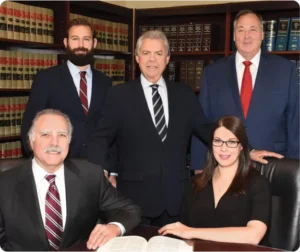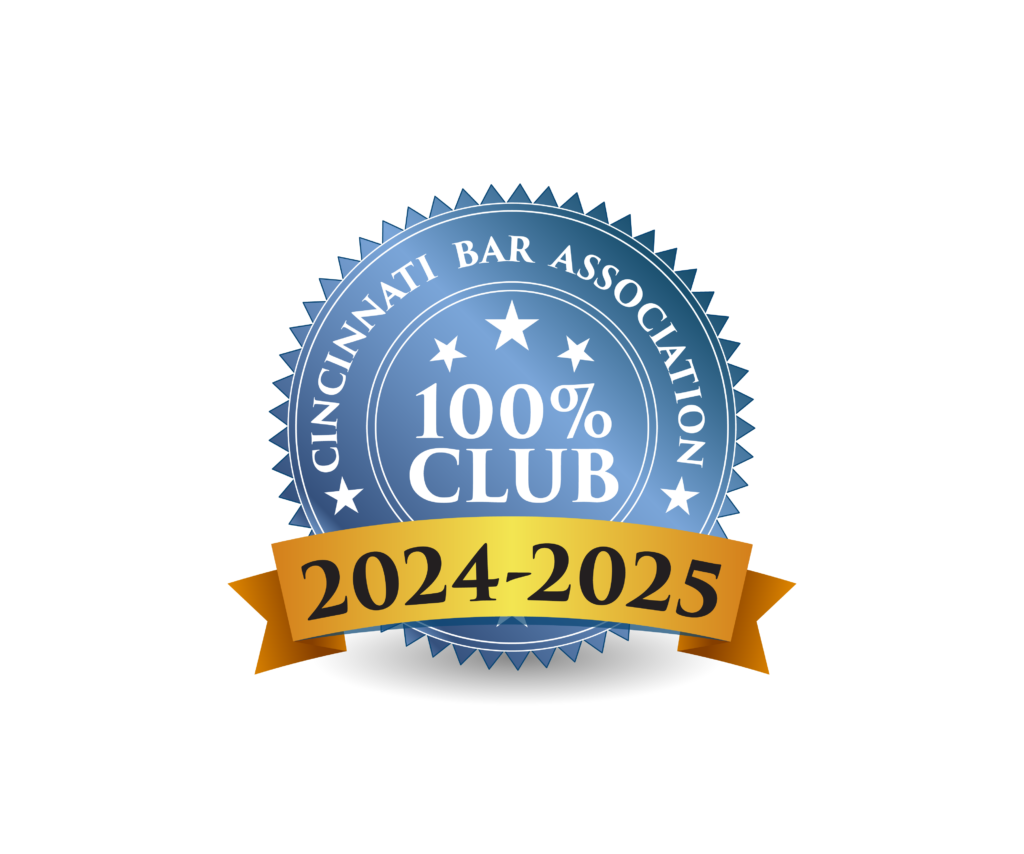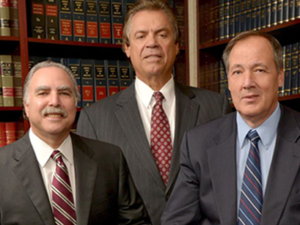If you've been injured due to unsafe conditions on someone else's property, you deserve compassionate legal support that fights for your rights. At O’Connor, Acciani & Levy, our Cincinnati premises liability Lawyer can help you seek justice and recover the compensation you’re entitled to. Property owners and businesses in Cincinnati have a legal duty to ensure their premises are safe for visitors. When they fail to meet this obligation, devastating accidents can occur.
At O’Connor, Acciani & Levy, we have over two decades of experience protecting injury victims across the Cincinnati tri-state area. Whether it’s hazards at Kroger grocery stores, unsafe staircases in Over-the-Rhine, or wet floors at Great American Ball Park, we’ll fight tirelessly for you. Contact our team today for a free, no-obligation consultation, and find out how we can help.
Cincinnati Premises Liability Guide
- Why Choose O’Connor, Acciani & Levy for Your Premises Liability Claim?
- What is Premises Liability?
- Types Of Premises Liability Cases
- Who May Be Held Liable in a Cincinnati Premises Liability Case?
- Do I Have a Premises Liability Case?
- Categories of Visitors and Property Owner Duties
- Immunity For Recreational Users
- Liability For Use of School Property
- Compensation Available to Premises Liability Victims in Cincinnati
- How Can I Prove Premises Liability?
- Statute Of Limitations for Premises Liability
- Contact Our Trusted Cincinnati Premises Liability Lawyers Today
Why Choose O’Connor, Acciani & Levy for Your Premises Liability Claim?

When you're dealing with injuries caused by someone else’s negligence, the lawyer you choose can make all the difference. The trusted personal injury attorneys at O’Connor, Acciani & Levy don’t just handle cases—they care about the people behind them. Here’s why Cincinnati residents have trusted us for more than 30 years:
- Unmatched Experience: Our team of attorneys brings over 200 years of combined legal experience, ensuring your case is handled with precision and care.
- Proven Success: We’ve recovered tens of millions of dollars in compensation for injury victims, securing justice for individuals like you.
- No Fees Unless You Win: We operate on a contingency fee basis, meaning you pay nothing unless we win your case.
- Personalized Attention: Every case is unique, and we take the time to understand your needs, offering tailored strategies to pursue the best possible outcome.
From managing evidence to communicating with insurance companies, O’Connor, Acciani & Levy takes care of every step so you can focus on healing.
What is Premises Liability?
Premises liability is an area of personal injury law that holds property owners responsible for maintaining safe conditions on their premises. If a hazardous condition causes harm to a visitor, the property owner may be legally liable for the resulting damages.
Premises liability cases often arise from accidents such as slip-and-falls, poor lighting, unsafe stairways, or inadequate security measures. Whether you’re injured at a public venue like Fountain Square, a local restaurant in Hyde Park, or a shopping mall like Kenwood Towne Centre, the principles of premises liability remain the same.
Types Of Premises Liability Cases

Some of the most common types of premises liability cases our personal injury attorneys have handled are those involving slip-and-fall injuries. These and other premises liability incidents occur because of a variety of hazards and obstacles, including:
- Uneven flooring
- Falling objects
- Dangerous equipment
- Hazardous fixtures and furniture
- Poor lighting
- Elevator or escalator problems
- Broken security cameras
- No security phone or panic button available
Some of the most common places where premises liability incidents tend to occur are:
- Grocery stores
- Shopping malls
- Retail stores
- Restaurants
- Parking lots
- Sidewalks
- Parking garages
Our Cincinnati lawyers are prepared to fight for the rights of clients who were injured on someone else's property due to negligence. Our goal is to help you recover fair compensation for your injuries.
Who May Be Held Liable in a Cincinnati Premises Liability Case?

Cincinnati is home to a variety of properties and businesses, each with specific legal responsibilities. The following entities may be held liable in a premises liability case, depending on the circumstances of your accident:
- Property Owners: Homeowners and landlords are required to address hazardous conditions on their properties, especially those that could harm visitors or tenants.
- Business Owners: Cincinnati businesses—from small shops in Clifton to large retail stores in Anderson Township—must ensure their premises are free of dangers like wet floors or broken handrails.
- Landlords: If a landlord neglects to provide adequate maintenance or fails to comply with building codes, they could be liable for tenant injuries.
- Government Entities: Public spaces like parks, sidewalks, or government buildings in Cincinnati are the property of local, state, or federal governments. These entities may be accountable if neglect contributes to unsafe conditions.
Determining who is liable in a premises liability case can be complex. When you hire us, our attorneys will investigate every aspect of your case to identify the responsible parties and fight for your rights.
Do I Have a Premises Liability Case?
You may have a valid premises liability claim if you were injured on someone else’s property due to a hazardous condition that could have been prevented. Common factors that contribute to strong premises liability cases include:
- Negligence: Was the property owner aware of or should they have reasonably known about the hazard? Did they fail to address it?
- Proof of Injury: Do you have evidence—such as medical records, photos, or eyewitness accounts—showing the injuries you sustained?
- Legal Entry: Were you legally on the property at the time of the accident (as opposed to trespassing)?
If you need help evaluating your case, our Cincinnati premises liability attorney will provide a thorough consultation to determine if you can pursue compensation.
Categories of Visitors and Property Owner Duties
The property owner's legal obligations to the victim depend on the victim's legal classification. There are four main types of legal classifications for visitors to a property:
Invitee
Invitees are on the property by invitation, whether expressed or implied, for a purpose that benefits the owner. A common example of an invitee is a customer at a retail store. Property owners have a duty to invitees to exercise ordinary care by maintaining the premises in a safe condition. Invitees are often allowed access to only a limited part of the property, not the entire premises. If the invitee goes outside the bounds of the invited area, then he or she becomes a trespasser or a licensee – and the property owner no longer needs to exercise ordinary care.
The duty of ordinary care depends on the situation, but it could include removing hazards like wet spots on the floor or repairing a damaged section of the floor or sidewalk. The owner or manager of a property that is used by the public, including a business or governmental property, is responsible for taking all reasonable safety precautions, including making sure the property:
- Is free of slippery surfaces where people may walk
- Is properly marked with cones or signs if there are any dangerous areas
- Does not have accessible hazardous areas that could harm children
- Has firm hand rails along all stairwells
- Has elevators that do not create a “step” up or down when stopped at a floor
- Offers ramps or working elevators that allow access to anyone on all available floors
Social Guest
An example of a social guest is someone you invite to your house. The property owner must advise social guests of any known dangerous or unsafe conditions on the property. This includes hazards the property owner should know about.
Licensee
These visitors are on the property for their own benefit. A common example of a licensee is a salesperson. Property owners have a duty to avoid wantonly or willfully causing injury to the licensee. This means property owners cannot be held liable for simply being negligent about a hazard or obstacle on the property.
Trespasser
A trespasser is someone who enters a property with no invitation, authorization or inducement, but is there purely for their own purposes or convenience, according to Ohio Revised Code (ORC) 2305.402(A)(3). Property owners owe trespassers the same duty as licensees. They only need to refrain from willful, wanton, or reckless conduct likely to cause injury. This means the property owner or manager must not purposely injure or trap a trespasser.
According to state law, if the property owner should know or believe that the trespasser is in danger, then the owner must exercise ordinary care to avoid causing injury. A notable exception to this rule is if the trespasser is a child. If the property owner is aware of any possible risk to children and does not exercise reasonable care to eliminate the danger, the owner may be liable (ORC 2305.402[D][1]).
Immunity For Recreational Users

In certain situations, Ohio gives property owners immunity from liability for injuries to recreational users of their property (ORC 1533.181). A recreational user is someone who has been granted permission to engage in recreational activities on a certain property, like fishing, swimming, hiking, or riding a snowmobile. However, the user had to have been granted permission without paying a fee or consideration to the property owner other than a lease fee (ORC 1533.18[B]). According to this statute, when property owners allow recreational use of their property:
- They are not guaranteeing the person’s safety.
- They assume no responsibility for liability.
- They have no duty to keep the premises safe.
Regardless of the visitor's legal status, the property owner cannot be held liable for injuries caused by open and obvious dangers. Dangers are considered open and obvious if they would have been seen by someone exercising ordinary care.
For example, if there is a dangerous section of sidewalk that is easy to see, it might be considered an open and obvious danger. Your Cincinnati premises liability attorney can explain this statute in further detail and determine whether it applies to your case.
Liability For Use of School Property
Ohio H.B. 290 § 1 (ORC 3313.791) provides immunity if a person is injured or killed on school property unless the injury, death, or loss to person or property results from willful or wanton misconduct by the school or school district, a member of the school district board of education, or an employee of the school district or any school in the district.
However, the school or school district is not immune from liability if the injured person was part of a group that paid a large fee for using school property. If you were injured as a guest on another party’s property, whether it was private, public, business, or governmental, contact our law firm today. You may be entitled to compensation for what you have experienced as a result of your injuries.
Compensation Available to Premises Liability Victims in Cincinnati

If you’re a victim of a premises liability incident, you may be entitled to various types of compensation, including:
- Medical Expenses (past and future)
- Lost Wages and reduced earning potential
- Pain and Suffering
- Property Damage
- Rehabilitation Costs
Every case is unique, and we’ll fight to ensure you receive the compensation you need to recover from your injuries.
How Can I Prove Premises Liability?
If you were injured due to a dangerous or hazardous condition on someone else’s property, our attorneys will need to prove several things to demonstrate that the owner or manager is liable, such as:
- The property owner or manager created the unsafe condition on the property, whether intentionally or unintentionally.
- The property owner or manager had plenty of time to notice the problem, and so he or she should have corrected it before the problem caused harm to someone.
- The property owner or manager did not place appropriate warning signs, barriers or markings to warn visitors of the unsafe condition and prevent them from accessing the unsafe location.
- The injury was directly caused by the hazardous condition and because of the owner’s or manager’s negligence in correcting the hazard or preventing guests from being harmed.
Premises liability cases can be complicated because these factors must be proven with solid evidence. Premises owners and managers often have teams of aggressive lawyers ready to fight against any claim of liability. However, our accomplished premises liability attorneys in Cincinnati know how to handle these types of cases and can negotiate on your behalf for the compensation that is owed to you.
Our legal team has many decades of successful experience fighting for our clients’ right to justice and maximum compensation. Our lawyers can review your claim, investigate what happened, and help you obtain the compensation you deserve for your injuries.
Statute Of Limitations for Premises Liability
You have a limited amount of time in which to file a claim of personal injury due to a slip-and-fall or other injury on someone else’s property, and that time limit is called a statute of limitations. Ohio allows two years from the date of injury to file a case; after that deadline, you may lose your ability to claim compensation for your injuries. You and your Cincinnati lawyer may decide to file a case against the property’s owner, builder, architect, or engineer.
However, if your case is against someone other than the owner, Ohio allows a 10-year statute of repose from the completion date of the faulty construction or property feature that caused your injuries (ORC 2305.131). The attorneys at O’Connor, Acciani & Levy are well-versed in Ohio premises liability law, and we can evaluate your claim and determine whether you have a valid case against the property’s owner, manager or other party.
Contact Our Trusted Cincinnati Premises Liability Lawyers Today
At O’Connor, Acciani & Levy, we understand how life-altering a premises liability injury can be. Whether you’ve suffered a fall on a slippery surface, an injury from defective stairs, or harm due to negligent security, our attorneys will guide you through every step of your case with care and dedication.
Don’t face insurance companies or negligent property owners alone. With offices conveniently located in downtown Cincinnati, our team is ready to provide the legal support you need. Schedule your free consultation today to learn how we can help you seek the justice and compensation you deserve.
Contact a Cincinnati personal injury law firm today at (513) 224-5461 or through our online form for a free consultation with a knowledgeable Cincinnati premises liability attorney. At O’Connor, Acciani & Levy, we put our experience to work for you.